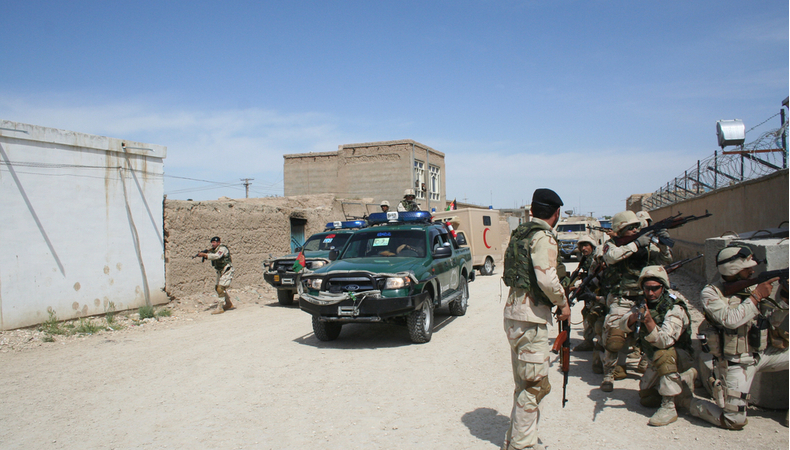Taliban control 90% of Afghanistan’s borders. Kabul Defense Ministry: “It’s an absolute lie”

“The borders with Tajikistan, Uzbekistan, Turkmenistan, and Iran are under our control,” ZabioullaMoudjakhed, a representative of the rebels, told the Russian news agency Ria Novosti. The Taliban in recent weeks has accelerated military operations to regain ground in the country, in conjunction with the withdrawal of foreign troops.
“It’s an absolute lie.” Kabul Defense Minister Fawad Aman responded with annoyance. Government forces control the country’s borders, the minister insisted, thus denying the statements made yesterday by the rebels’ representative to the Russian press agencies. “It is unfounded propaganda,” said the spokesman of the same minister. The Taliban, in recent weeks, has accelerated military operations to regain ground in the country after the withdrawal of US-led foreign troops.
The Taliban these days are attacking the government forces with their militias. They managed to control almost all border crossings, showing that they have a well-thought-out military plan. The Taliban representative confirmed that in negotiations with the Kabul government, the group is asking for the release of about seven thousand prisoners of war whom they consider “political prisoners.”
They also want to change the Constitution adopted during the American presence, which they consider too “Western.” So instead, they propose to go back to a 1964 Constitution. And then they started talking about “power-sharing,” about the division of government posts with the current political forces.
The government of Kabul, and many of its Western supporters, respond by asking for clarity on the Taliban’s requests: “We want a document with your requests to start the negotiations.” That should allow the Kabul government to understand how to negotiate.
Meanwhile, a confidential meeting of some “special envoys” for Afghanistan was held in Rome, a diplomatic format that in these 20 years of NATO countries’ presence in Kabul has accompanied political discussions at every stage of the country’s life. It was the first meeting since the American withdrawal from the government. On the discussion table at the Foreign Ministry, the problems emerging with the military offensives of the Taliban were evident. For weeks, the “Islamic students” have begun to flee government forces from many country districts.
After deciding to close the “Resolute Support” operation, the NATO mission, the Atlantic Alliance, and above all, the United States has a reputation problem. Biden administration wants to react to that, not only to the issues created by the withdrawal of its military from the ground.
Zalmay Khalilzad, Biden’s representative for Afghan “reconciliation,” heard the opinion of his NATO colleagues in the morning. Present were Italy, France, Germany, Great Britain, Norway (which has a particular mediating role in Afghanistan). In the afternoon, a session was held. In addition to the mediator of Qatar, Ambassador Al Qathtani, a representative of the Taliban and one of the governments of Kabul, spoke by video conference.




